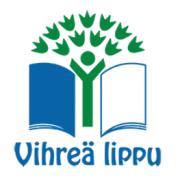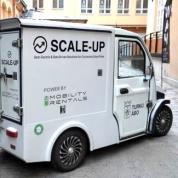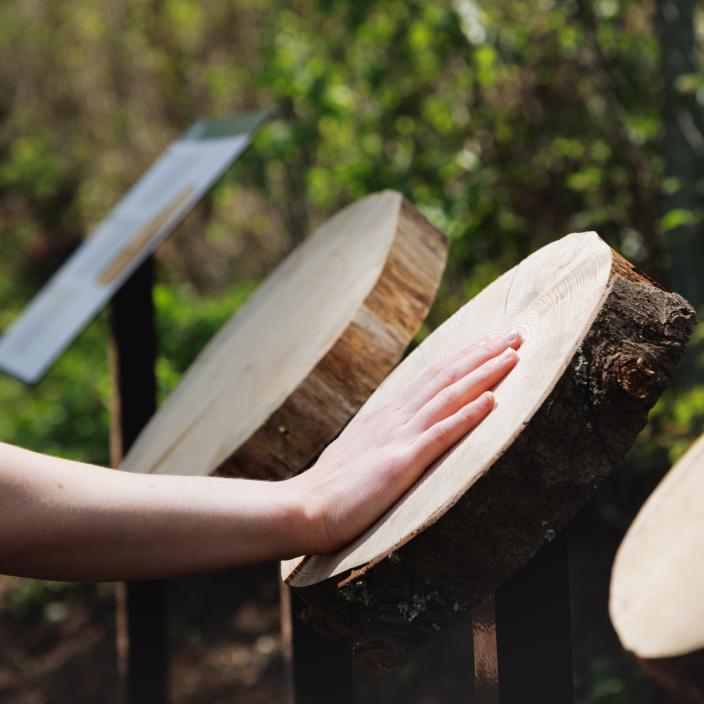Do you know how you can promote sustainable choices at your workplace, school, educational institution, or other communities? This page offers tips for doing just that. The focus is on everyday life in workplaces, daycare centers, schools, and educational institutions.
Of course, life in Turku is diverse: some work as entrepreneurs, others care for children at home, and some are retired. The tips for sustainable living can be adapted to one’s own life. The key is to remember that even small choices matter, and you don’t need to change all your habits at once.
At work
Developing workplace conditions and culture towards sustainability often starts with one or a few active employees who present their ideas for improvement. The employers role is to support and enable the integration of sustainable practices within the workplace.
An organization’s responsibility starts with its strategy and extends to its practices, procurement, and daily operations. Here, the focus is on actions that individual employees can take or propose to be implemented at their own workplace.
- Commuting benefits and bike commuting perks
- Safe and functional bicycle parking
- Changing and shower facilities
- Effective and sufficient recycling points and guidelines
- Availability and quality of plant-based food in the workplace cafeteria
- Ordering climate-friendly catering for workplace events
- Sustainability guidelines for purchases and events
- Opportunities to participate in trainings and campaigns
Furthermore, crucial from a climate perspective is what companies or communities do to reduce emissions from their operations and to create sustainable business models. The city of Turku has established a Climate Team for businesses, communities, and organizations. Members of the team commit to climate, nature, or circular economy actions that reduce greenhouse gas emissions directly or indirectly. Many businesses and organizations in Turku have already committed to the city’s climate work.
On the Climate Changemakers page, you can learn about different people in Turku whose everyday work contributes to achieving Turku’s climate goals in one way or another. Their employers have signed a climate commitment with the city. The role of businesses in combating climate change is explained on its own page.
Related content:

In schools and daycare centers
Sustainable development is strongly integrated into Finland’s national curriculum. In Turku’s primary schools, students are being equipped with knowledge, skills, and attitudes to mitigate and adapt to climate change. In addition, sustainable development projects are implemented in cooperation with organizations like Valonia and other local groups in Turku’s schools and daycare centers.
The knowledge, habits, and practices adopted in school and daycare form the foundation for long-term change. A connection with nature is established early in life. Important aspects of sustainability in school and daycare routines include:
- Safe walking or cycling routes to school
- Smart energy use
- Encouraging sustainable consumption
- Minimizing waste and sorting it properly
- Climate-friendly food options
The city of Turku offers plant-based food options to both lower and upper secondary school students. Vegetarian food is available in schools once a week.
Several of Turku’s early childhood and basic education units have earned the Green Flag certification. Green Flag is a sustainable development program and certification in education. Schools and daycare centers that have earned the certificate are committed to improving their sustainability and have appointed an environmental committee primarily made up of students.
Related content:

Turku also invites young people to join in climate work, as they play a key role in future change. Young people aged 15-24 living or studying in Turku have been able to carry out their own climate projects with the city's support. Turku University of Applied Sciences (Turku AMK) students have had the opportunity to brainstorm climate actions for the city and businesses.
Read more about youth climate projects
Turku has two universities and four universities of applied sciences, with a total of over 40,000 students. The role of higher education institutions and students in the city is highly significant. Both universities of applied sciences and universities offer programs in fields that contribute to building a climate-resilient future. The role of sustainable development as part of various academic programs and course offerings has also grown in recent years. As a higher education student, you can influence both the content of your studies and the practical operations on campus. There are many ways to engage: you can provide direct feedback or become active through your student organization, student union, or other associations operating on your campus.
Related content:

Sustainable mobility in everyday life
How do you commute daily? Road traffic is the largest contributor to emissions in Turku. In 2023, road traffic accounted for 32 % of total emissions. Reducing transportation emissions is a key factor in helping Turku achieve its climate goals.
A large portion of traffic emissions comes from work and school commutes. Walking or cycling, as well as using public transport (Föli), are sustainable ways to cover these distances. Traveling by muscle power also contributes to personal well-being. There is ample research evidence on the health benefits of walking, for example. Even if you usually drive for most of your daily trips, consider whether cycling, public transport, or carpooling could be an alternative, perhaps once a week or during the summer season. Or could you combine different modes of transport using park-and-ride options?
The city of Turku is improving conditions for sustainable mobility in several ways. The city is enhancing walking and cycling conditions so that people can move easily on foot or bike throughout the year. This includes increased winter maintenance of key bike lanes, expanding the availability of city bikes, and improving public transport.
Turku participated in the EU-funded SCALE-UP project from 2020 to 2025, which focused on developing sustainable, smart, and inclusive mobility solutions. The project worked on solutions for sustainable travel chains and park-and-ride systems, enhancing the mobility view in service maps, and creating sustainable mobility models for schools and daycare centers.
Related content:

